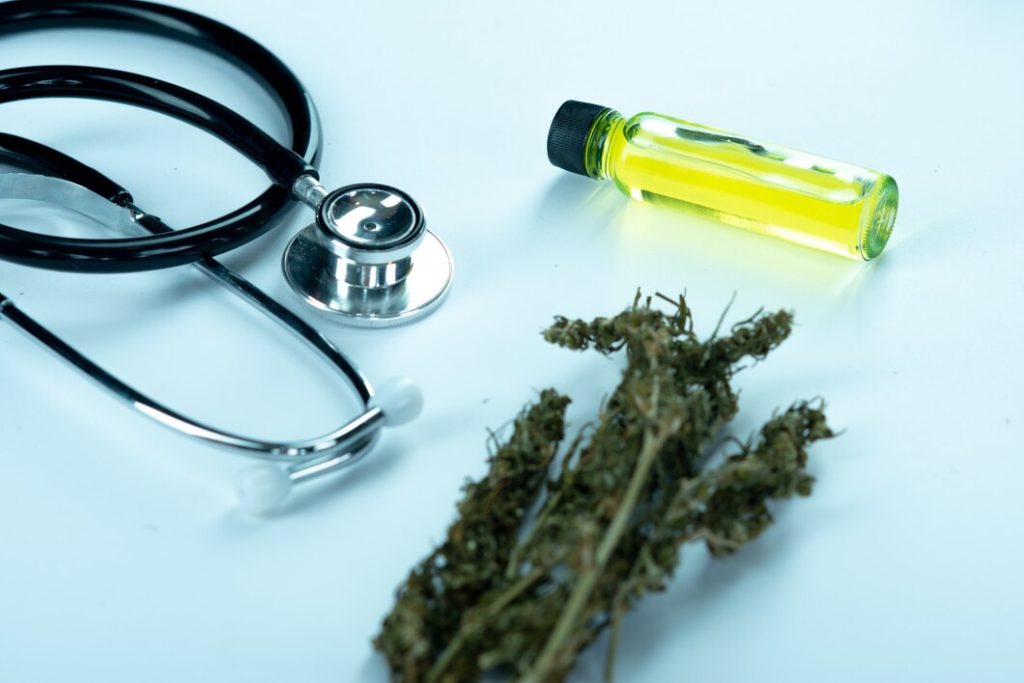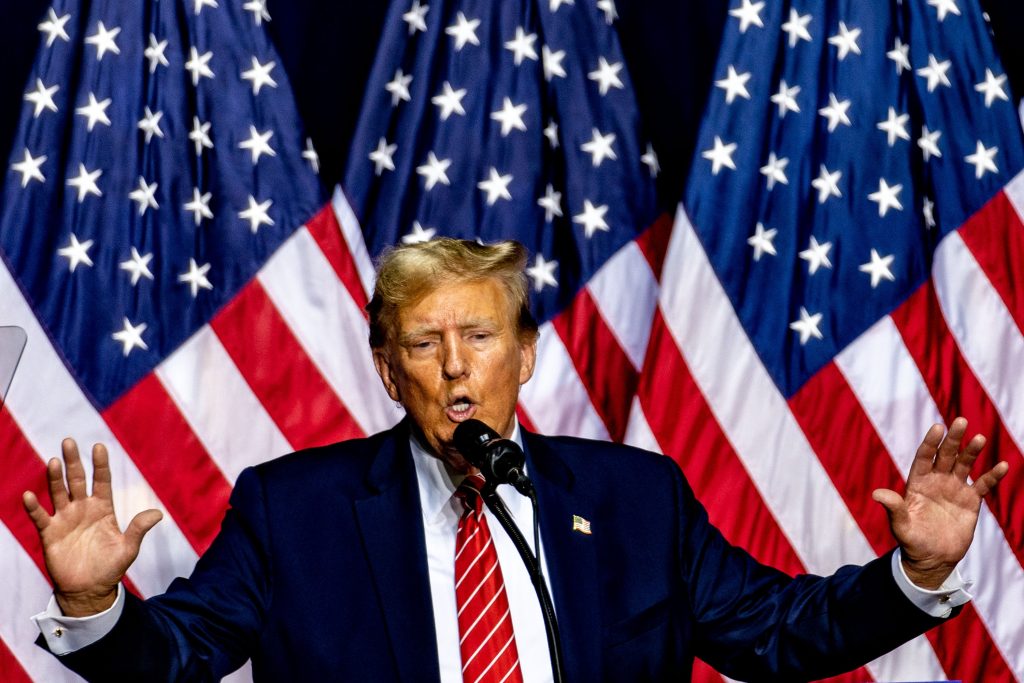Your cart is currently empty!
Trump is Looking to Change Marijuana Laws in the Us and It Could Have a Major Impact

More than fifty years ago, the U.S. government locked marijuana in the same legal vault as heroin, a Schedule I drug, condemned as dangerous and without medical value. Yet today, cannabis dispensaries stand on busy street corners from Denver to Miami, their neon signs as common as coffee shops. Forty states allow medical marijuana, and nearly 70% of Americans support legalization in some form.
So how can a substance be a billion-dollar industry in one zip code and a federal crime in another? That contradiction might soon be tested. President Donald Trump has hinted that his administration is considering reclassifying marijuana to a less restrictive category, a decision that could rewrite the rules for medicine, research, and commerce, while reigniting the national debate over safety and freedom.
The question isn’t whether the country has changed its view of cannabis. It has. The question is whether federal law is ready to admit it.
The Moment of Change
For decades, America’s cannabis policy has been defined by a split-screen reality. On one side, a growing number of states have embraced medical and even recreational marijuana regulating it, taxing it, and integrating it into their economies. On the other hand, the federal government has kept marijuana in the same legal tier as heroin, maintaining strict barriers to research, banking, and interstate commerce.
President Trump’s recent remarks suggest that this stalemate may not hold much longer. By openly considering moving marijuana from Schedule I to Schedule III, his administration is signaling that the federal government might finally acknowledge what many states, doctors, and patients have long argued: cannabis has legitimate medical value. This bureaucratic shift could mark a turning point in how America balances law, science, and public opinion.
The move comes at a moment when public sentiment is more united on this issue than ever before. Gallup polling shows support for legalization at nearly 70%, and usage rates have surged, with over 64 million Americans reporting cannabis use in the past year. Yet, despite this shift, the consequences of Schedule I status are still felt daily from cancer patients denied access in restrictive states to small dispensaries strangled by punitive federal taxes.
If reclassification happens, it would be the most significant federal cannabis reform in over half a century. But with high stakes come high tensions in the political arena, in the medical community, and in households where the debate over marijuana’s role in society is far from settled.
What Federal Reclassification Means

Under the Controlled Substances Act, drugs are placed into five schedules based on their potential for abuse, accepted medical use, and safety under medical supervision. Marijuana’s current position in Schedule I puts it in the most restrictive category alongside heroin, LSD, and MDMA, and officially labels it as having no medical value. This classification carries significant consequences: doctors cannot prescribe it, researchers face intense federal scrutiny, and businesses are treated as if they are trafficking in illicit substances.
Moving marijuana to Schedule III would represent a fundamental shift in how the federal government views the plant. It would formally acknowledge that cannabis has accepted medical uses and a lower potential for abuse than Schedule I or II substances. Drugs in this category such as ketamine and certain anabolic steroids can be prescribed by doctors, dispensed by licensed pharmacies, and studied more freely under federal law.
Here’s what would change:
- Medical Recognition: Doctors could prescribe cannabis for approved conditions, and pharmacies could dispense it under regulated conditions, bringing cannabis into the same legal framework as other controlled medications.
- Expanded Research Access: The restrictive Schedule I barriers would be lifted, making it far easier for universities, hospitals, and pharmaceutical companies to conduct large-scale clinical trials on cannabis’ benefits and risks.
- Tax Relief for Businesses: Cannabis companies would no longer be subject to Section 280E of the tax code, which currently prevents them from deducting basic business expenses like rent, payroll, and marketing a financial chokehold that can push effective tax rates above 70%.
- Potential Banking Openings: While not an automatic fix, reclassification could encourage more banks to work with cannabis businesses, reducing the reliance on risky cash-only operations.
Here’s what would not change:
- Recreational Use Remains Illegal Federally: States could still allow it, but under federal law, only medical cannabis would be recognized.
- No Interstate Commerce: Products could not legally cross state lines, keeping markets siloed.
- DEA Oversight Continues: Strict registration, record-keeping, and reporting requirements similar to those for other controlled substances would remain in place.
Reclassification wouldn’t erase the divide between state and federal law, but it would narrow it. More importantly, it would open the door for science, medicine, and industry to operate with fewer legal handcuffs while still keeping cannabis under a controlled and regulated framework.
Potential Benefits

Reclassifying marijuana from Schedule I to Schedule III would ripple through medicine, science, business, and public health offering opportunities that have been blocked for over half a century.
1. Unlocking Medical Research
For decades, scientists have faced near-impossible hurdles to studying cannabis. Schedule I status requires researchers to secure special federal approvals and source cannabis from limited, government-approved suppliers, often resulting in studies with small sample sizes and outdated plant material. Moving to Schedule III would remove many of these roadblocks, allowing universities, hospitals, and pharmaceutical companies to run large-scale clinical trials. This could accelerate the development of precise dosing guidelines, clearer data on drug interactions, and more targeted treatments for conditions ranging from chronic pain to cancer-related nausea. As UC San Diego biomedical scientist Raphael Cuomo notes, rescheduling would “make it easier to study potential benefits and harms across conditions,” ultimately leading to better-informed medical decisions.
2. Financial Relief for Cannabis Businesses
One of the most immediate impacts would be the removal of Section 280E’s punishing tax rules. Under current law, cannabis businesses cannot deduct basic operating expenses, a restriction that has forced many to operate with razor-thin margins or close entirely. With reclassification, companies could deduct rent, payroll, marketing, and other costs like any legal business. This could release hundreds of millions of dollars back into the legal market, fueling expansion, job creation, and infrastructure improvements.
3. Potential Access to Banking and Investment
Although reclassification alone wouldn’t guarantee banking access, it would shift cannabis’ legal status in a way that could ease financial institutions’ reluctance. Banks, credit unions, and payment processors might be more willing to serve cannabis companies if the product is federally recognized as a legitimate medicine. This could reduce the dangers of cash-heavy operations, open the door to business loans, and attract institutional investors who have so far avoided the sector due to legal risks.
4. Public Health and Safety Improvements
Reclassification could also lead to stronger product standards and quality controls. With FDA oversight and medical prescriptions, patients would be more likely to receive cannabis products that are lab-tested, consistently dosed, and free of harmful contaminants. This shift could reduce reliance on unregulated markets, where product potency and safety are often uncertain. In turn, it could support better education on responsible use, particularly for vulnerable groups such as youth, pregnant individuals, or people with certain mental health conditions.
5. A Step Toward Legal Alignment
While not full legalization, reclassification would signal federal recognition of cannabis’ medical value, narrowing the gap between federal and state laws. For patients in restrictive states, it might expand legal access under medical programs. For businesses in legal states, it would validate their operations at a national level, setting the stage for more comprehensive reforms in the future.
The Risks and Criticisms

One of the strongest concerns is that rescheduling could be interpreted by the public as a federal “seal of approval.” UC San Diego’s Raphael Cuomo warns that such a shift, especially in the absence of robust public education, could accelerate already-rising rates of heavy and daily use. According to a 2024 study in Addiction, daily or near-daily cannabis consumption now surpasses high-frequency drinking in the U.S., with an estimated 17.7 million people using marijuana almost every day. That’s a 15-fold increase since the early 1990s.
Long-term or high-frequency cannabis use carries documented risks. Research from the Colorado Department of Public Health and Environment links heavy use to memory problems, psychotic disorders, and, in some cases, full-blown psychosis. Physical health issues can also emerge, including chronic bronchitis, wheezing, and cardiovascular strain. A rare but severe condition called Cannabinoid Hyperemesis Syndrome, marked by persistent vomiting can occur in heavy users and is reversible only by stopping cannabis consumption
If reclassification proceeds without strong messaging, there’s concern that warnings about use during pregnancy, youth consumption, impaired driving, and mental health vulnerabilities could be lost in the excitement of policy change. As Cuomo puts it, “Risk perception often moves faster than policy,” meaning communities could underestimate potential harms before safeguards catch up.
Reclassification is not legalization. Recreational use would still be illegal under federal law, interstate commerce would remain prohibited, and the DEA would continue strict oversight. Without broader reform, legal contradictions between state and federal policy will persist, keeping the patchwork system in place
The United States remains a signatory to the 1961 Single Convention on Narcotic Drugs, which requires signatories to criminalize non-medical cannabis use. Rescheduling may improve domestic medical access but won’t resolve treaty obligations, leaving questions about how far U.S. reforms can go without renegotiating international commitments.
The Political Landscape

Trump has sent mixed signals on cannabis over the years, but his recent comments suggest a willingness to move marijuana to Schedule III. This approach allows him to acknowledge its medical value without embracing full recreational legalization, a middle ground that appeals to moderates while avoiding a direct clash with more conservative voters who remain wary of cannabis. His past endorsement of Florida’s Amendment 3, a state-level legalization measure, further complicates the picture, hinting at a pragmatic approach to policy where voter sentiment is strong.
Even with presidential support, reclassification is not a one-man decision. The process runs through the Department of Justice, the Department of Health and Human Services, and ultimately the Drug Enforcement Administration (DEA). Trump’s nominees to these agencies could shape the outcome significantly. For example, his choice for DEA administrator, Terrance C. Cole, has previously expressed opposition to cannabis reform. The acting DEA administrator, Derek Maltz, shares similar skepticism. Meanwhile, newly confirmed HHS Secretary Robert F. Kennedy Jr. has said he would defer to the DEA on scheduling decisions, despite past statements favoring decriminalization.
On Capitol Hill, cannabis reform remains fractured. Some lawmakers push for broader legalization or state autonomy through bills like the STATES 2.0 Act, while others resist any relaxation of federal restrictions. State-level policy continues to advance, regardless 40 states permit medical marijuana, and 24 allow recreational use, widening the gap between state laws and federal prohibition. Federal reclassification could be seen as validation by legalization-friendly states, while more restrictive states might cite continued federal prohibition of recreational use as a reason to hold the line.
Reclassification could become a significant campaign talking point, especially given its high public support and the economic stakes for struggling cannabis businesses. But political timing is tricky: moving too quickly risks backlash from federal agencies or opponents, while moving too slowly could cause the issue to lose momentum in an election cycle where other topics dominate headlines.
Ultimately, the push to move cannabis to Schedule III is part of a broader political chessboard. For Trump, it’s a way to signal responsiveness to public opinion without committing to full legalization. For Congress, it’s a chance to test the waters on reform without dismantling federal control entirely. And for the states, it’s either an invitation to expand existing programs or a reason to dig in against further change.
What’s at Stake for Everyday Americans

To many, marijuana’s federal status functions less as a technicality and more as a force that determines health, work, financial security, and freedom. A shift from Schedule I to Schedule III could ripple far beyond Washington, landing squarely in the lives of millions.
1. Patients Seeking Relief
In states with restrictive cannabis laws, federal reclassification could open doors to medical treatments that were once off-limits. A veteran managing chronic pain, a cancer patient coping with chemotherapy side effects, or someone living with epilepsy might gain access to regulated, doctor-prescribed cannabis without having to turn to unregulated markets or travel across state lines. The ability to fill a prescription at a pharmacy, rather than navigating legal gray areas, could mean safer, more consistent care.
2. Small Business Survival
For local dispensary owners, Section 280E has been more than a financial nuisance; it’s been a survival barrier. Unable to deduct rent, payroll, or marketing costs, many operate on razor-thin margins or close their doors entirely. Removing this burden could allow these small businesses to reinvest in their communities, hire more staff, and compete with larger, multi-state operators. In rural or economically struggling areas, the difference could be the survival of the only local dispensary and the jobs it supports.
3. Communities Dependent on Cannabis Revenue
In some states, cannabis tax revenue funds public schools, infrastructure projects, and community health programs. A healthier, more stable cannabis industry fueled by fairer taxation and potential access to banking could bolster these public investments. Conversely, if federal policy remains restrictive, communities relying on that revenue could face stalled growth.
4. People with Past Convictions
While reclassification alone wouldn’t erase criminal records, it could influence future reform efforts, including expungement initiatives. If the federal government acknowledges cannabis has medical value, it becomes harder to justify harsh penalties for low-level possession, a shift that could impact thousands still living with the legal and economic fallout of past convictions.
5. Everyday Consumers
For the average adult who chooses to use cannabis, reclassification could mean more transparency and safety in what they consume. Federal recognition would likely push for stricter quality controls, standardized labeling, and consumer protections that are currently inconsistent across states.
The Next Chapter in America’s Cannabis Story
Marijuana’s journey in America has always been about more than a plant. It’s been about who gets to define truth, how we weigh risk against freedom, and whether our laws can adapt to the realities people live every day. For over fifty years, the federal government’s stance on cannabis has been frozen in a frame built on fear, politics, and outdated science.
Reclassification to Schedule III wouldn’t end that story but it could turn the page. It would signal that evidence matters, that medical value counts, and that progress is possible when policy catches up with reality. It would also challenge us, as a nation, to keep asking harder questions: How do we balance access with safety? How do we correct past injustices while building a regulated, responsible future? And how do we make sure the benefits of reform reach everyone, not just those already in positions of advantage?
Policy shifts like this are often measured in legal briefs and economic forecasts, but their true impact is measured in lives, in the patient who finally gets relief, the small business that survives, and the community that thrives because its tax revenue funds a new school or health clinic.
The road ahead is still uncertain. But in this moment, the choice is clear: cling to laws that no longer reflect the country we live in, or take a step however imperfect toward the country we want to become.
